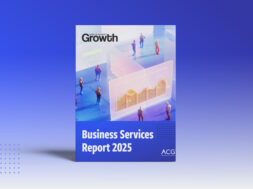Coronavirus Has Shown That Social-Impact Investing Is Here to Stay
Market observers expected investors would dump socially conscious companies in a downturn, but a large proportion of ESG funds continue to outperform their peers despite headwinds from COVID-19.

It’s hard to say definitively which companies are going to do well during the coronavirus pandemic. But those that do good are set to emerge stronger.
The COVID-19 shock will likely be seen as a turning point for investment in B Corps, companies that have opted to be legally bound to consider the impact of their business on employees, customers, suppliers, community and the environment.
Having emerged relatively recently, some market observers expected that in a downturn investors would dump socially conscious companies, viewing them as a nice-to-have but less reliable asset than traditional companies. I know several very smart financial professionals who expected it to be the same story this time.
They were wrong. In the first four months of the year, investors poured a record $12 billion into funds that invest in environmental, social and governance (ESG) practices, according to Morningstar Direct. And more than 70% of U.S. ESG funds across all asset classes performed better than their counterparts.
Their resilience has shown that the past few years of outperformance was no flash in the pan. A report issued last year by BofA Merrill Lynch Global Research found that investors would have beaten the market by up to 3 percentage points annually over the past five years if they’d only invested in the best-behaved companies.
Growing alarm and sensitivity among consumers to issues like climate change and global inequality is translating into purchasing decisions and rewarding companies that are conscious about these matters.
In short, this crisis has affirmed that doing good and making money are not mutually exclusive for investors. The roots of this transformation lie in a tectonic shift in consumer attitudes.
Growing alarm and sensitivity among consumers to issues like climate change and global inequality is translating into purchasing decisions and rewarding companies that are conscious about these matters. A 2018 study by Nielsen found that sales of chocolate, coffee and bath products that made environmental claims were growing four times faster than rival brands.
Those trends are only going to be strengthened by a public health crisis that has put a harsh spotlight on the way companies take social responsibility and treat their employees. We’ve seen, for example, the backlash against large companies that took emergency loans meant for small businesses, something that wouldn’t be allowed under B Corp standards.
One survey found that 42% of consumers would change their shopping habits as a result of the crisis, while 23% said they would pay more for ethical brands.
Adding to the investment tailwinds behind B Corps, it’s become easier for investors to evaluate their social-impact credentials. The B Impact Assessment conducted by the nonprofit B Lab has emerged as a widely accepted gauge of companies’ performance on the key criteria. B Lab had certified over 3,300 B Corps in 71 countries as of April.
A natural result of these trends is that B Corps will be getting more attention from private equity capital. Social-impact companies have traditionally been wary of acquisition by PE or some bigger firms, fearing that their values would be compromised.
Going forward, B-Corps shouldn’t be so worried. Buyers are attracted to them precisely because of their strong ethical reputations. If a buyer loosened those standards, they’d effectively be killing the goose that lays the golden egg.
A striking sign of how this phenomenon is affecting the world of private equity came in January, when California-based Alpine Investors became one of only a handful of buyout firms to earn B Corp status. Alpine’s leaders made it clear that the move was personally important to them and that they saw clear value in it.
There’s been a flurry of activity by PE firms setting up impact investing funds. The amount of capital raised by dedicated impact investing funds rose to $28 billion in the first half of 2019 from $18 billion in 2018.
KKR closed its debut impact fund in February, having raised $1.3 billion to target companies providing solutions to social and environmental challenges. Bain Capital is reportedly planning to launch a second Double Impact fund this year after closing its first for $390 million in 2017. The Double Impact fund uses B Lab’s assessment scores to monitor each of its portfolio companies.
The growth of impact funds means a lot more money will be chasing firms with social impact credentials, creating more incentives for companies to re-think their approach and move toward becoming B Corps. It’s a virtuous cycle that the COVID-19 crisis will accelerate.

Alex Sauter leads MHT Partners’ social impact M&A advisory practice. He can be reached at asauter@mhtpartners.com.


